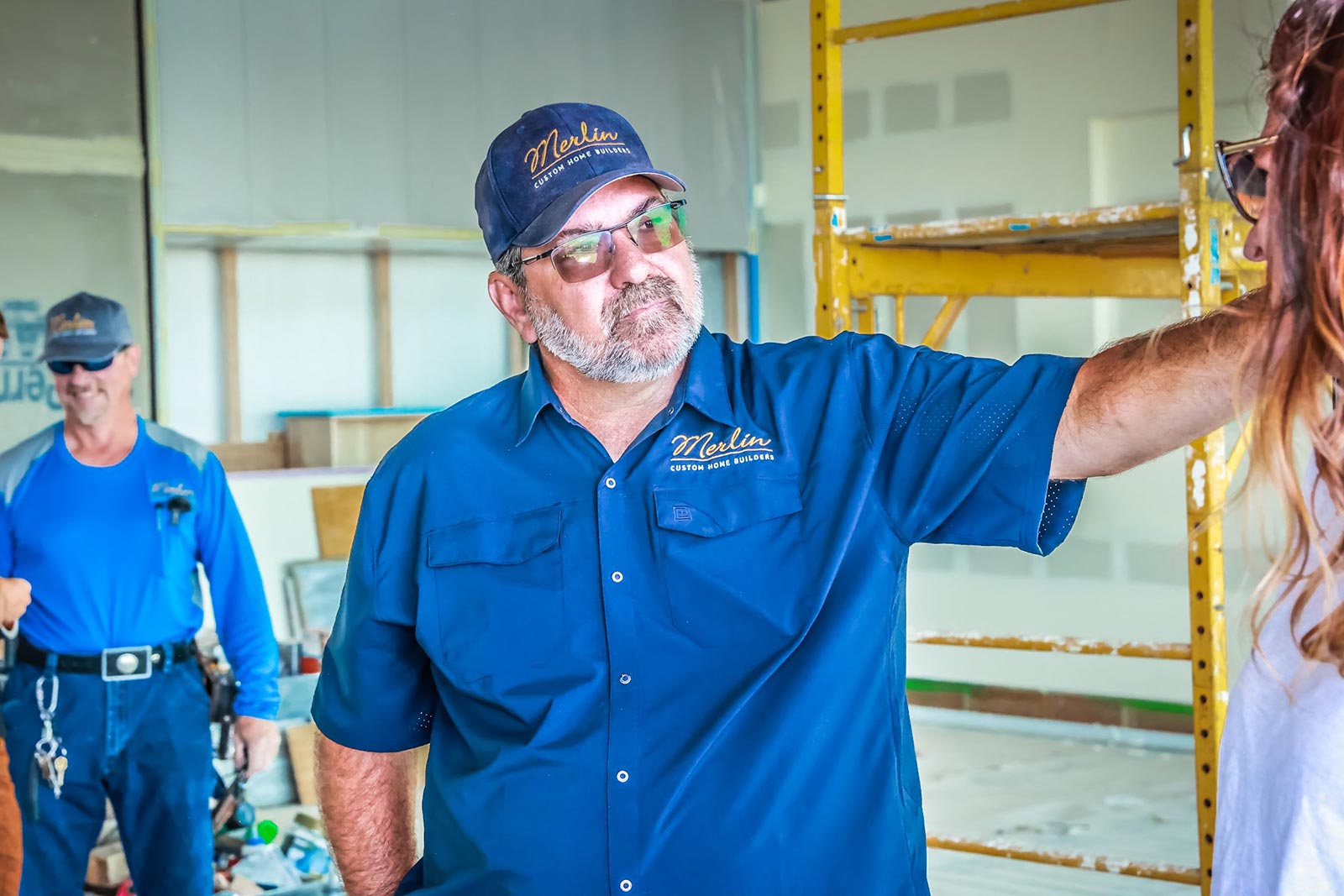Prevent surprises and delays by getting answers from the top: Ask The builder.
There are lots of things homeowners can do to keep their building project running smoothly. Number one is making timely product choices, but another key step is to direct all change requests and questions, no matter how small, to the custom home builder, or the project superintendent.
It’s tempting to ask workers to make small changes, but that can create stress and misunderstanding. For instance, a homeowner may ask an electrician to move the junction box for a wall sconce a few inches to one side. Simple, right? Maybe, but the electrician may have to ask the framing carpenter to add blocking at the new location, or to move a wall stud that’s now in the way.
The problem is not the change itself but the fact that the framer has to bill the custom home builder for the additional time and materials. If the builder passes the cost on to the homeowners, they could see it as an extra charge they hadn’t agreed to.
Another example is a homeowner who asks the architect or kitchen designer to change the spec for the kitchen tile, rather than the builder. If the builder is the one responsible for ordering this item but doesn’t get the information in time, the wrong tile might show up.
Going directly to the builder with each change request ensures that the homeowners learn the cost ahead of time, so they can decide whether that cost is worth it. If they say yes, they will avoid surprises and feel better about the final bill.
So it is clear why change orders should go to the custom home builder, but why can’t the homeowner ask tradespeople informational questions?
The answer is that these subcontractors may not have all the facts. Say the homeowner wants a different type of showerhead but, before approaching the custom home builder, casually asks the plumber how much that model usually costs. The plumber may give a ballpark cost without knowing all the other variables, creating an unrealistic expectation in the homeowner’s mind. It’s best to go to the builder, who will contact the supplier (or send the homeowner to the plumbing showroom) and then apply all markups and discounts.
On well-run jobs, workers and subs defer to the builder. In fact, most tradespeople prefer not to be asked a lot of questions because it puts them in an awkward position: they want to be polite to the homeowner and provide good service, but they also work for the builder and are committed to following the builder’s policies.
A custom home build has a lot of moving parts and keeping them all moving in the same direction is easier with one person at the wheel. That’s why it’s crucial to use the custom home builder as the primary contact. Doing so ensures a better experience for everyone.



